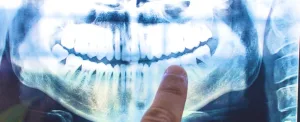In the age of fitness influencers and social media, more teenagers are turning to muscle-building supplements like protein powders, creatine, and pre-workout formulas. While these products promise enhanced strength and muscle growth, experts warn that they may also contribute to a dangerous body image disorder known as muscle dysmorphia.
What Is Muscle Dysmorphia?
Muscle dysmorphia, often called “bigorexia,” is a mental health condition where individuals obsess over not being muscular or lean enough, despite being physically fit. This disorder can lead to extreme dieting, compulsive exercise, and supplement overuse, sometimes escalating to steroid use.
A recent study published in PLOS Mental Health found a strong link between the use of multiple muscle-building supplements and increased symptoms of muscle dysmorphia, particularly in young men. The findings highlight a growing concern: the pursuit of the “perfect” physique may be driving teens toward unhealthy behaviors.
How Supplements May Worsen the Problem
While protein powders and creatine are widely available and marketed as safe fitness enhancers, they are often misused. Teens looking for faster muscle gains may take excessive doses, believing more is better. This misuse can reinforce obsessive thoughts about body size and feed into muscle dysmorphia symptoms.
Furthermore, many fitness supplements are poorly regulated. Some contain hidden ingredients, including anabolic steroids, which can have severe health consequences. The lack of oversight makes it difficult for consumers—especially impressionable teens—to distinguish between safe products and potentially harmful ones.
The Role of Social Media in Body Image Issues
Social media platforms play a huge role in shaping young people’s perceptions of fitness and body image. Teens are bombarded with images of ultra-muscular physiques, often enhanced by lighting, filters, or even performance-enhancing substances. These unrealistic portrayals can lead to body dissatisfaction, pushing young individuals to rely on supplements in an attempt to achieve unattainable goals.
Dr. Jason Nagata, a pediatrician specializing in adolescent health, warns that fitness-related content often glorifies extreme muscle gain while failing to address the risks associated with supplement misuse and excessive training.
Recognizing the Warning Signs
Parents, coaches, and peers should be aware of key signs of muscle dysmorphia, including:
- Constantly checking the mirror for perceived flaws
- Skipping social events to focus on workouts
- Strict, inflexible diets aimed at gaining muscle
- Excessive supplement use beyond recommended doses
- Signs of anxiety or depression related to body image
Encouraging a Healthy Approach to Fitness
Preventing muscle dysmorphia starts with promoting balanced fitness goals. Here’s how:
- Emphasize overall health over aesthetics – Encourage teens to focus on strength, endurance, and well-being rather than appearance.
- Educate on proper supplement use – Teach young athletes the importance of moderation and consulting professionals before using any fitness products.
- Promote diverse body standards – Challenge unrealistic social media portrayals and celebrate different body types.
- Encourage professional help if needed – If muscle dysmorphia symptoms are present, therapy and mental health support can make a difference.
Final Thoughts
While muscle-building supplements may seem like an easy way to boost fitness, their overuse can have unintended consequences. Muscle dysmorphia is a serious issue that affects both physical and mental well-being, especially in teenagers striving for an unrealistic ideal. By raising awareness, promoting balanced fitness habits, and challenging harmful body standards, we can help young people build confidence in a healthier, more sustainable way.




+ There are no comments
Add yours